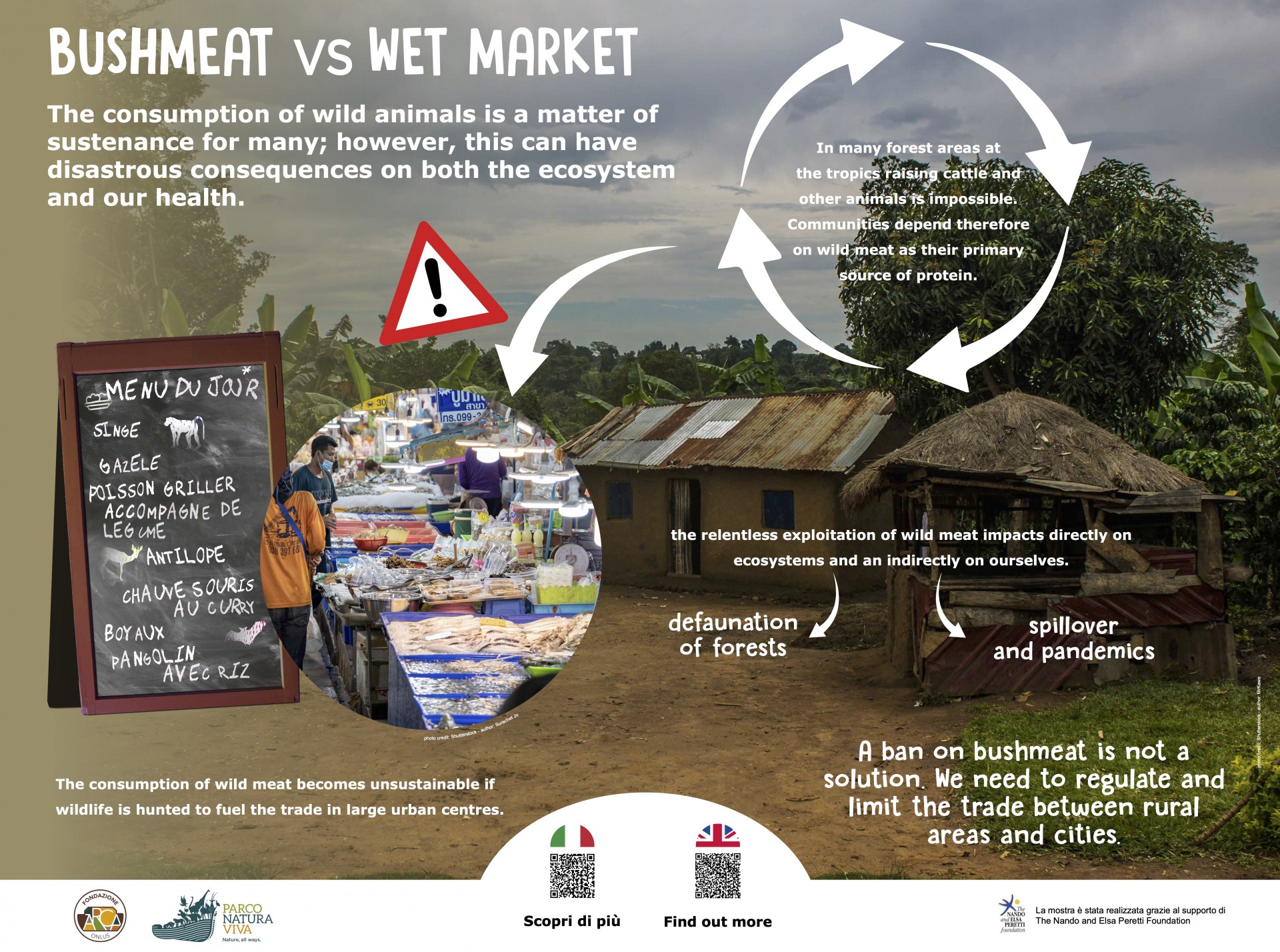
The outbreak of COVID-19 pandemic has been linked to the
consumption of meat derived from wild animals, "bushmeat", which is still very common in various countries around the world.
In particular, the blame has been placed on those places where this kind of meat is sold, often illegally, the "wet-markets".
Wet-markets are markets where animals are slaughtered on site, hence the “wet”. Such markets are widespread in multiple tropical areas of the globe.
These markets, due to the low hygienic conditions, are known to be the possible origin of spillover events, the transmission of a pathogen from one species to another. According to multiple scientists a spill over lies at the origin of SARS-Cov2, which "spilled" from
pangolins and/or
bats, both traded as bushmeat, to humans.
In the west we have been discussing the closure of these markets, or at least a ban on the trade of bushmeat. However, the complexity of the issue requires us to be aware of what lies behind the consumption of bushmeat, and why it is still such a large phenomenon. In some areas of the world this consumption is a necessity for many communities. Millions of people depend on wild meat for their intake of proteins.
What threatens our health is an ever growing trade of wild animals, to be sold as bushmeat, towards the metropolis of various tropical countries.
To have a deeper insight into the matters of bushmeat trade and wet-markets we have contacted two experts who have spent years studying these issues.
In the first video, we interview
professor Julia Fa from Manchester Metropolitan University (UK), who has a decades-long experience on the issue of bushmeat, particularly in West Africa and Latin America. Prof. Fa discusses the roots of wild meat consumption and what the consequences on both the ecosystem and our health can be when such consumption becomes unsustainable.
In the second video
Prof. Sara Platto, from Jianghan University in Wuhan (China) tells us about why we should consider the pandemic as an "announced pandemic", and of how the loss of biodiversity resulting from an unstainable exploitation of nature can only increase the risk of incurring into future pandemics like COVID-19.

